The widely overlooked, yet unique and beneficial 103-line poem on Islamic Legal Maxims from Shaykh Ibn ‘Uthaymeen, Manthoomat Usool al-Fiqh wa Qawaa’idihi, is now available as a workbook to be used for upcoming classes by Ustaadh Moosaa Richardson, in shaa’ Allah.
QUICK SHIPPING AFFILIATE* LINKS: Purchase it now from Amazon (paperback, hardcover & kindle editions available): USA | UK | CAN | AUS
*When you use our affiliate links, we may earn a small commission which helps maintain our website and da’wah activities, so we thank you, jazaakum Allahu khayran!
Al-hamdu lillaah, we are pleased to announce that our latest publication, Islamic Legal Maxims: Terminology, Foundations, & Principles: Study Guide for Shaykh Uthaymeen’s Poetry on Usool al-Fiqh, is now available for purchase worldwide!
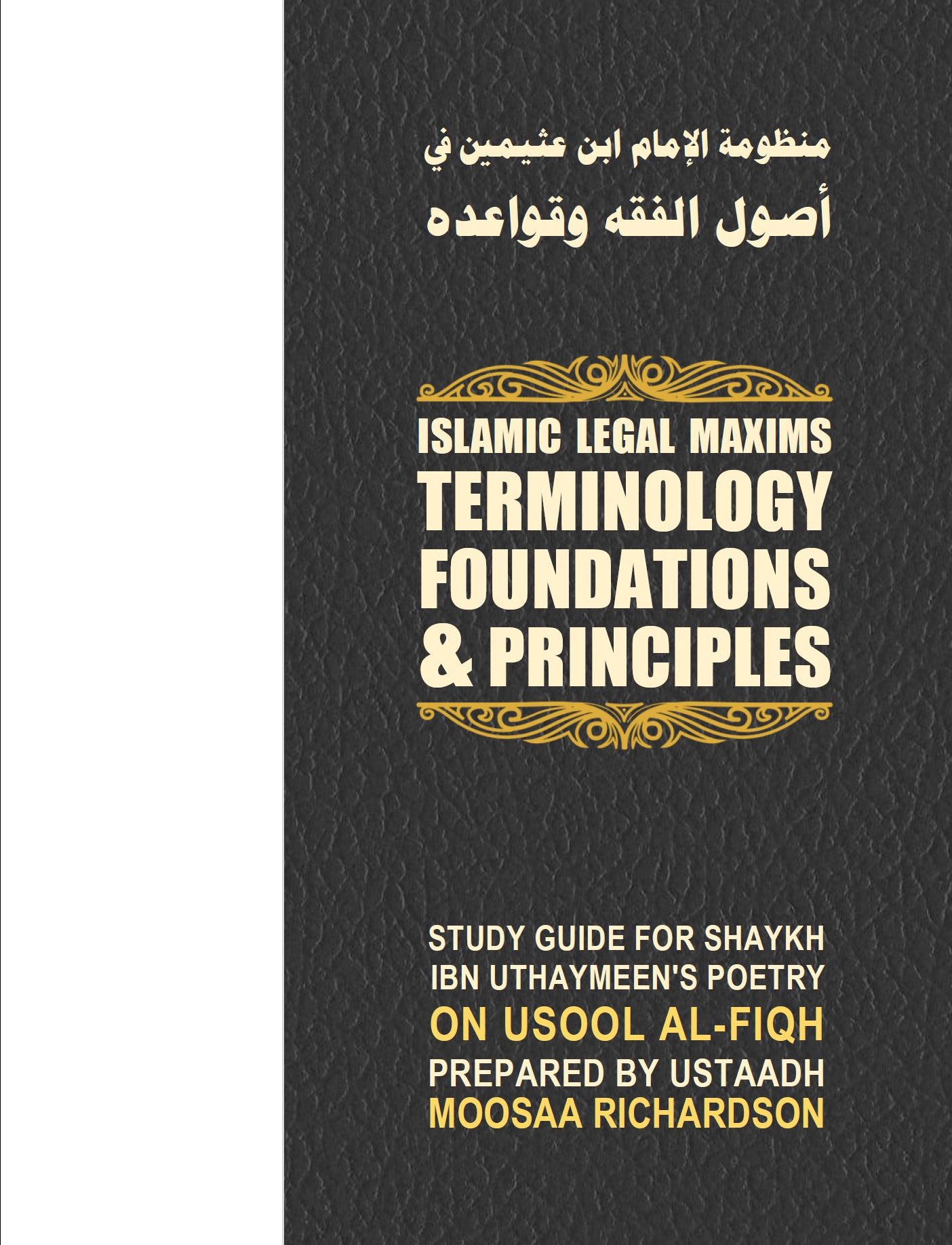
This unique resource brings the amazing poem of Shaykh Ibn ‘Uthaymeen (may Allah have Mercy on him) into the English Language for the very first time! From the introduction of the workbook written by Ustaadh Moosaa Richardson:
For those who did not know that our teacher, the great scholar, Shaykh Ibn ‘Uthaymeen (may Allah have Mercy on him), actually wrote his own poetry, then this poem might come as one of the most pleasant surprises imaginable! This original poetry on the topic of Usool al-Fiqh, was actually composed by the shaykh himself and then explained in detail over many classes. The recordings of those sessions have been transcribed and published as a 384-page book, under the supervision of the shaykh’s charitable foundation. I have included an appendix in the back of this workbook which includes the entire poem in the shaykh’s own handwriting (!), as facilitated by the shaykh’s charitable foundation and found in the Ibn al-Jowzee printing (3rd ed., 1434). The recordings of his explanation are available at his website at the following address: https://binothaimeen.net/content/Menu/lessonsince?tid=1221
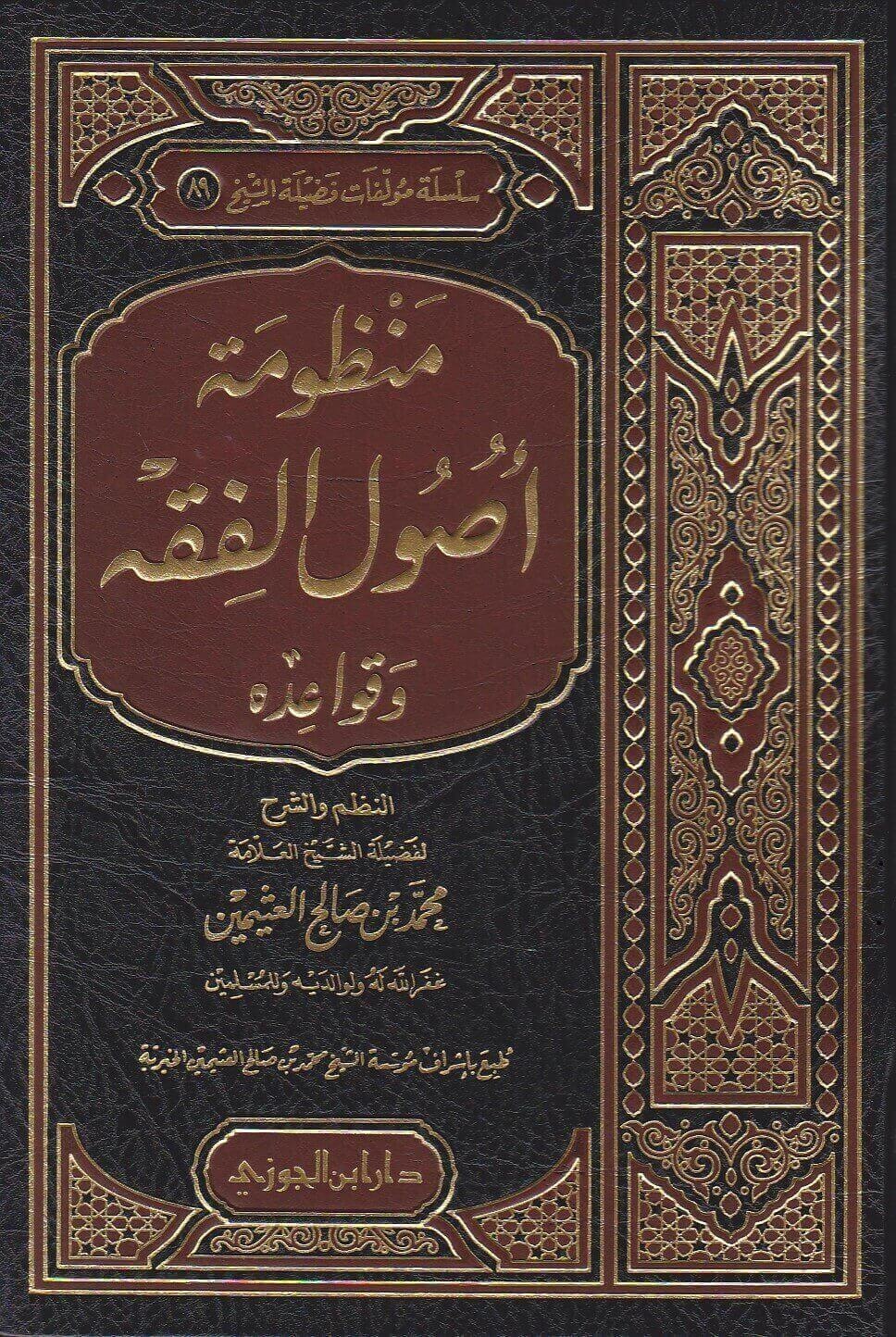
The topic of Usool al-Fiqh is extremely important for all those who wish to understand how evidences are applied to new situations. Ignorance of these principles and foundations can cause a total failure in understanding the verdicts of the scholars on modern issues of importance and their details and complexities. Without the tools by which to understand how the scholars derive and apply their rulings, even a sincere, truth-seeking individual from Ahlus-Sunnah might fail to understand their use of broadly applicable principles and foundations, and then falsely assume that they have spoken without evidence. Thus, the author of this poetry, Shaykh Ibn ‘Uthaymeen (may Allah have Mercy on him), stated:
Take advantage of the qawaa’id (principles) and usool (foundations),
Whoever misses them is deprived of attainment [of knowledge].
In his lessons on the poem (p.44), he explained:
This is a principle the scholars have: “Whoever is deprived of the foundations shall be deprived of arrival at his goal,” and they spoke the truth! Thus, we must be vigilant about understanding these principles, learning all that is included in them, researching them together, and asking those who know more than us about them, so we could actualize the point of studying them, with sincere intentions and good follow-through. Whoever misses out on these principles could only study Islamic knowledge issue by issue, one at a time, as he has no foundation to build anything on [for himself]. Thus, his knowledge is flawed, his thought process is slow and irregular, and he forgets issues easily…
This workbook was prepared specifically at the occasion of my return to travelling for da’wah after a few years. My beloved and respected elder, Shaykh Abu Muhammad al-Maghribi (may Allah bless and preserve him), requested me to come and visit his local community in Marietta, Georgia, at Masjid Ibad-ur-Rahman, where I had visited at least twice some years ago. They have requested me to teach both general classes in the evenings, as well as advanced classes for students of knowledge in the mornings. I ask Allah to give us and them success and prosperity, and to aid them in fulfilling their virtuous ambition to purchase and renovate a permanent building for their masjid and community.
So with great excitement and anticipation of benefit, I put this workbook together for this occasion (those morning sessions) and beyond (the following week in Pittsburgh during Shaykh Abu Muhammad’s visit, in shaa’ Allah), hoping that Allah might accept it from us and grant us success, forgiveness, and raised ranks in His magnificent gardens of Paradise.
I ask Allah, the Mighty and Majestic, to have Mercy on the author of this poem, Shaykh Ibn ‘Uthaymeen, who stated:

Here, take for yourself from these usool (foundations), a number [of them],
By way of them, I hope for lofty gardens of residence [in Paradise].
I ask Allah to grant him this wish and enter him into the highest ranks of al-Firdows.
[End of quote from the workbook’s introduction]
RESOURCES:
LISTEN to the entire poem recited in Arabic and translated into English by Ustaadh Moosaa Richardson: https://www.spreaker.com/user/radio1mm/uf103-a-e-mr-14440211-edited-wecho
Download this FREE PDF version of the workbook: [here]
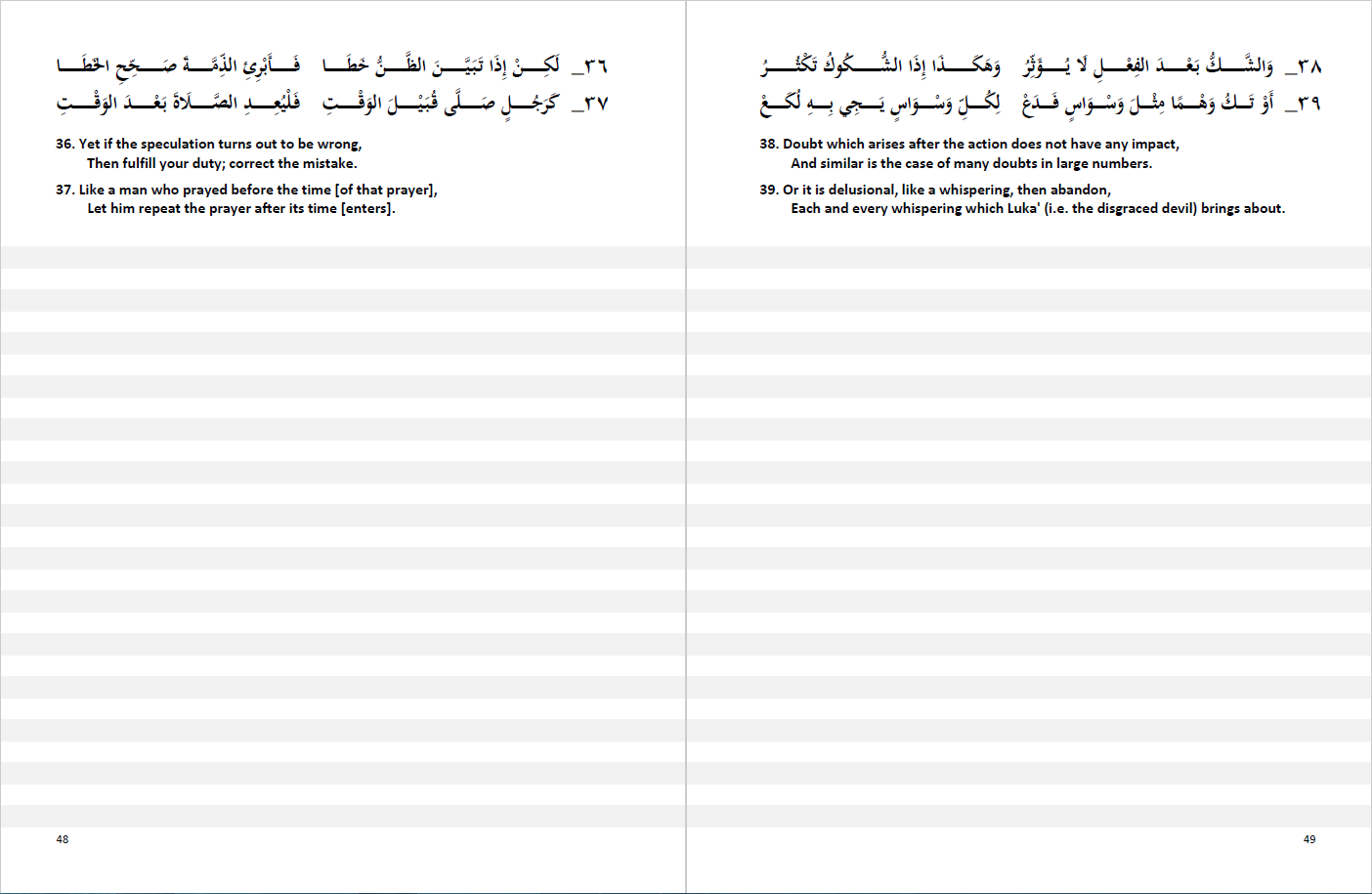
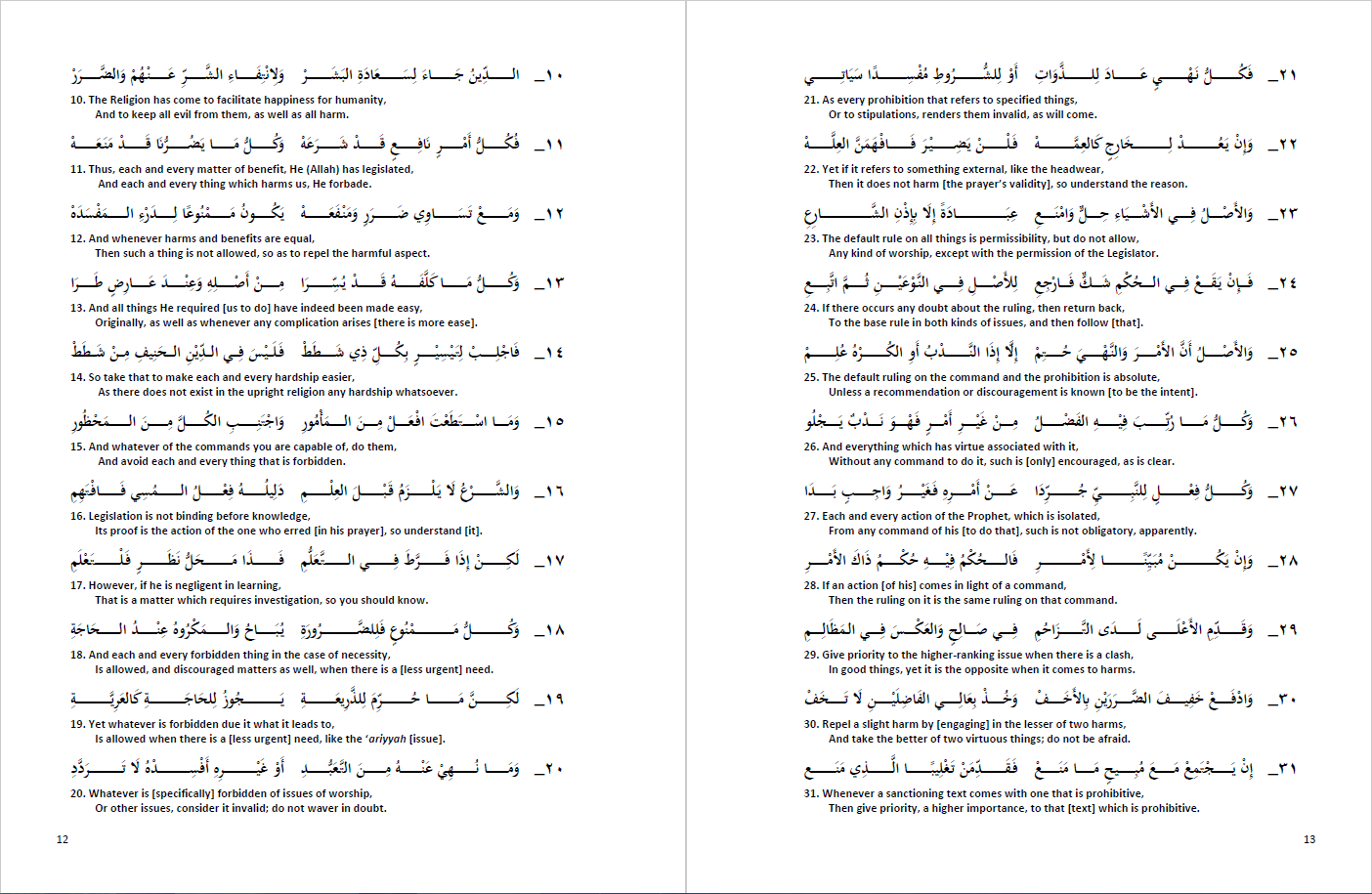
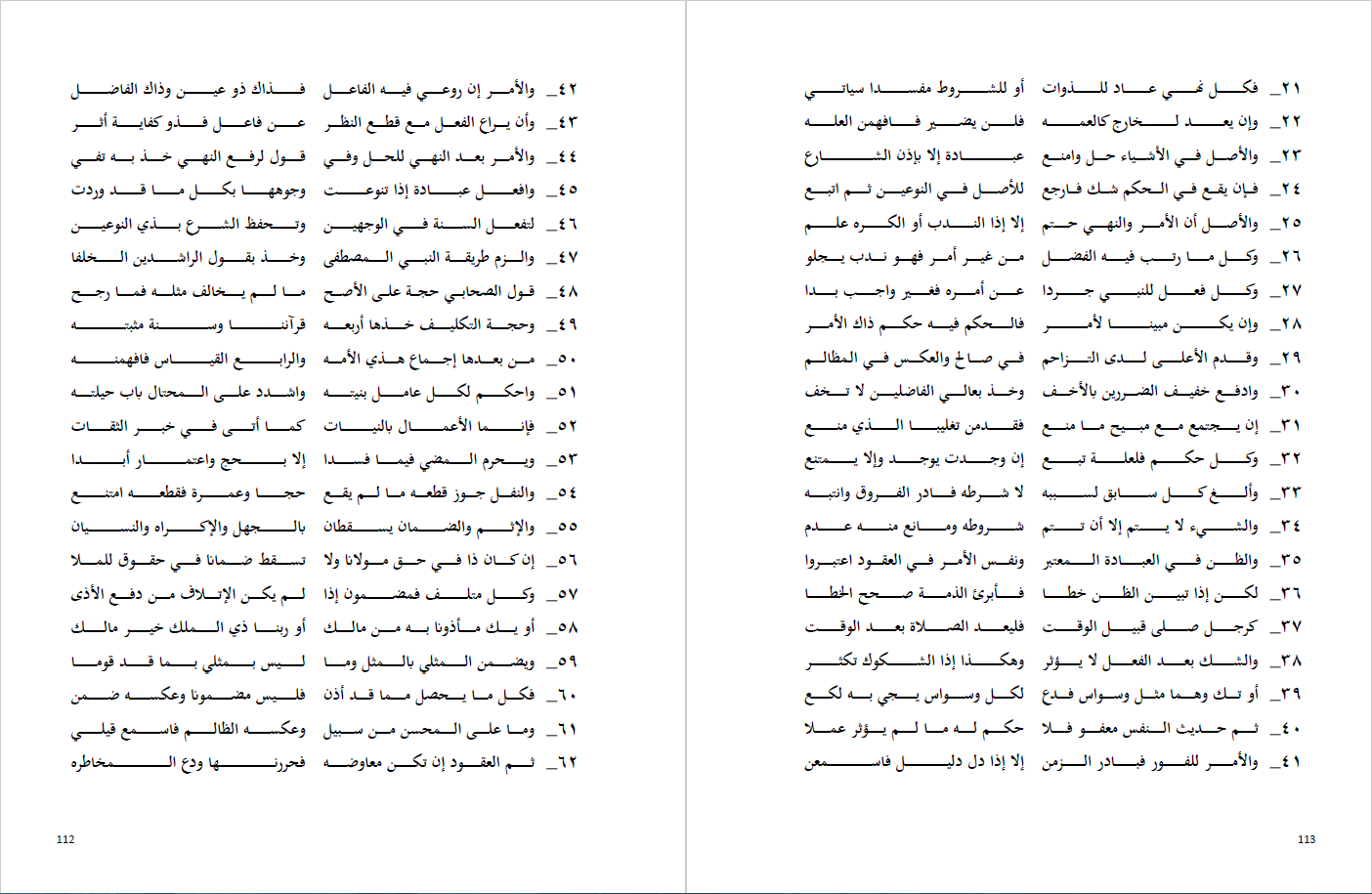
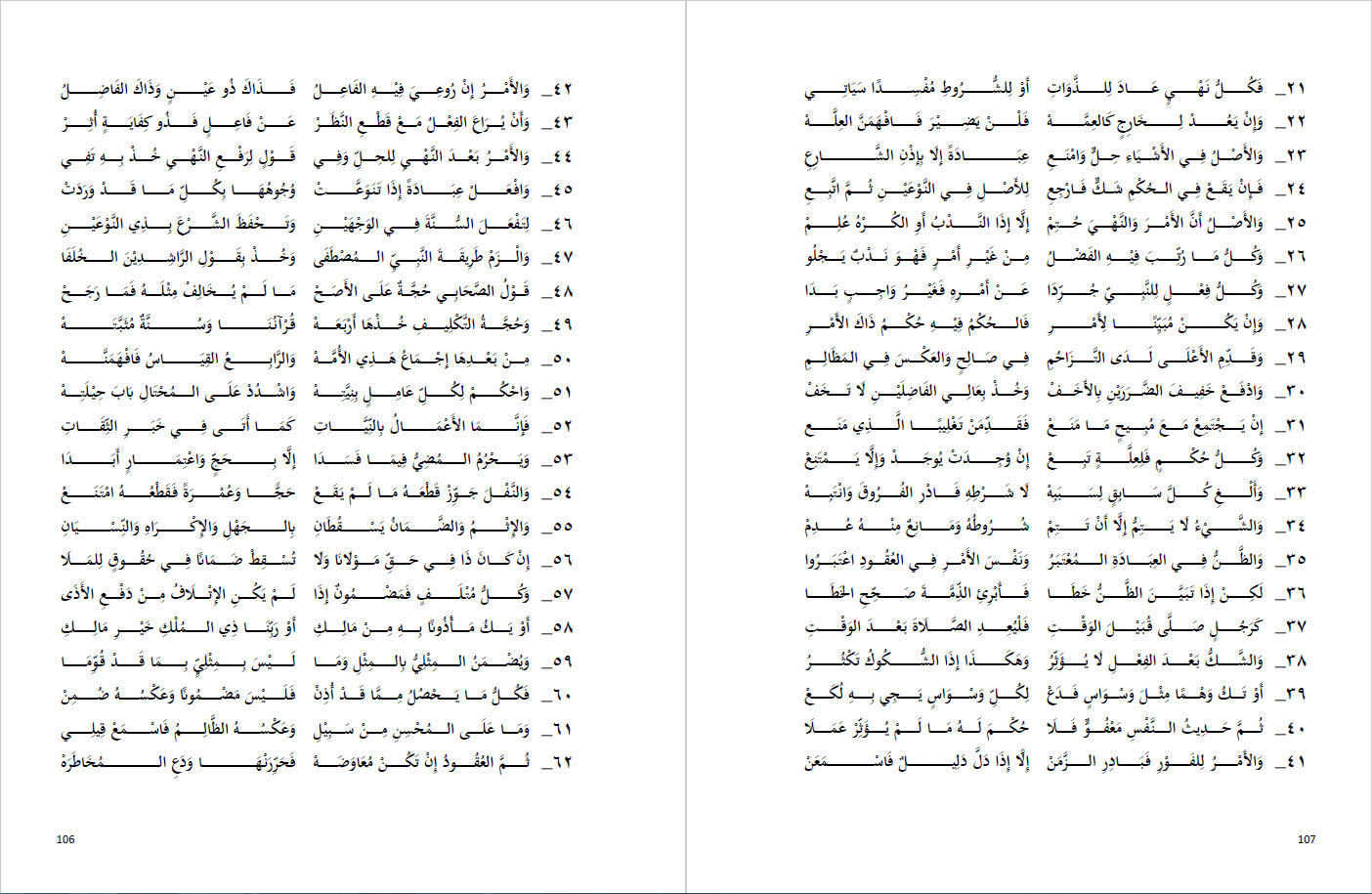
Available now on Amazon (affiliate link*): USA | UK | CAN | AUS
NOW AVAILABLE worldwide as a PDF download as well: https://payhip.com/b/PZHN7
For wholesale enquiries, contact: Publications@bakkah.net
*When you use our affiliate links, we may earn a small commission which helps maintain our website and da’wah activities, so we thank you, jazaakum Allahu khayran!

As salam alaykoum, I heard about another field of Islamic Science, which is named “Maqasid ad-Deen” (the aims of the legislation?). Could you please propose an English translation of that name, and explains the differences between it and “Usoul al-Fiqh”. Thank you